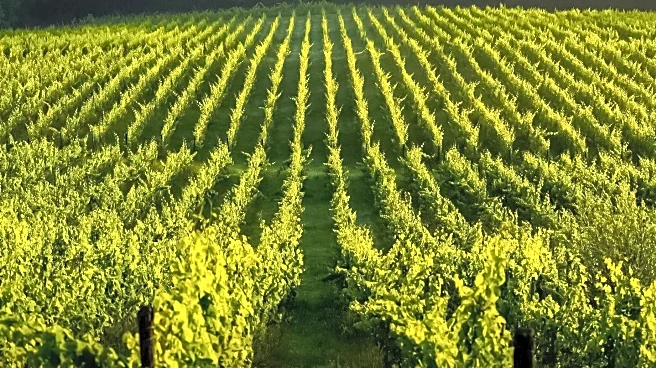What's Happening?
In response to increasing temperatures, vineyards in Portugal's Alentejo region have adopted night harvesting to protect grape quality. This practice, which helps preserve the freshness of grapes by avoiding daytime heat, has become more common as climate change impacts the region. Vineyard co-owner Bárbara Monteiro noted that workers initially resisted the night schedule but have since adapted, appreciating the cooler conditions. The shift to night harvesting is part of a broader adaptation strategy to maintain wine quality amid changing climate conditions.
Why It's Important?
The move to night harvesting in Portugal's vineyards underscores the broader impact of climate change on agriculture. As temperatures rise, traditional farming practices are being reevaluated to ensure crop quality and sustainability. For the wine industry, maintaining grape quality is crucial for producing high-quality wines, which are economically significant for regions like Alentejo. This adaptation not only helps preserve the wine's flavor profile but also supports the livelihoods of those dependent on viticulture. The practice may serve as a model for other regions facing similar climate challenges.
Beyond the Headlines
The shift to night harvesting highlights the need for innovative agricultural practices in the face of climate change. It raises questions about the long-term sustainability of traditional farming methods and the potential need for further adaptations. Additionally, this change may influence labor dynamics, as workers adjust to new schedules and conditions. The success of night harvesting could encourage other agricultural sectors to explore similar strategies, promoting resilience and sustainability in the face of environmental changes.










